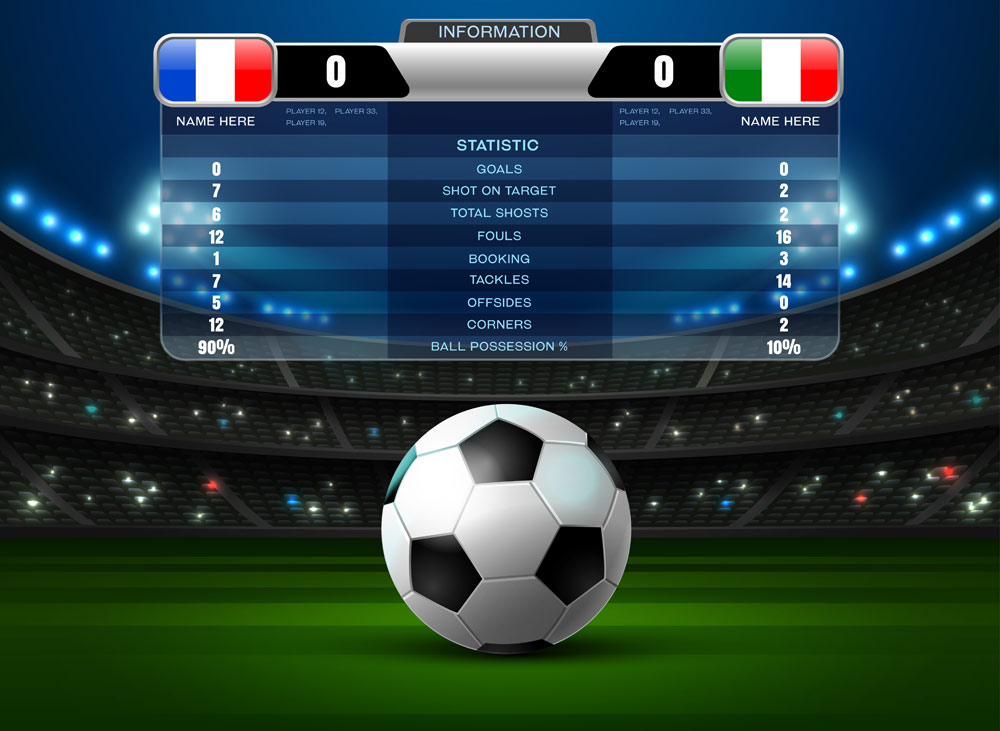
Online sports betting can be a fun way to earn a bit of extra tax free cash now and then. But before you jump in at the deep end, it’s crucial to make sure you understand sports betting odds. Here, we’ll explain how odds work and how you can turn them to your advantage.
How Betting Odds Work
Betting odds are generally written as fractions (e.g. 7/1 pronounced “seven to one”) or decimals (e.g. 2.50). Rarely, they may also be presented as percentages.
Fractional odds show the relationship between your potential winnings (how much you get if your bet turns out to be correct) and how much you need to bet in order to receive those winnings (the stake). For example, if the odds are 15/1, then betting £1 will win you £15.
The idea behind these numbers is that the event is 15 times less likely to happen than not happen. E.g. odds of 1/3 on Chelsea FC winning a football game imply that Chelsea is three times more likely to win (3) than to lose (1). You could also say that they have a 75% chance of winning (25/75 = 1/3).
When the odds are 1 or 1/1, this is called “evens” and implies that the outcome has a 50:50 chance of happening or not happening. When the winnings are smaller than the stake (e.g. with odds 1/3) this is called “odds-on”, meaning that the outcome supposedly has more than 50% chance of happening.
Whereas fractional odds are normally used in the UK, decimal odds are more popular in Canada, Australia and Continental Europe. Decimal odds show you the total amount that you’ll get back if you bet £1 (or €1 or $1 etc) and win the bet.
Odds of 5.00 mean that betting £1 will win you £4. Because your original stake is returned along with your winnings, the total amount that you receive if you win the bet is £5, so the odds are 5.00. This is the same as saying 4/1 in fractional odds.
To convert from fractional odds to decimal odds, convert the decimal to a fraction and add 1. E.g. evens in fractional odds are 1/1. This is 1.00 as a demical. Adding 1 gives us 2.00. So evens in decimal odds are written 2.00. A little confusing, but you should get the hang of it eventually.
Sports Betting Tips
Now you know how sports odds work, it’s time to learn some tips for smart sports betting.
Start off by focusing on only one sport and one team. This will make it easier for you to gather the knowledge that you need to make informed bets. Betting randomly on all sorts of sports and teams will not help you to learn and will probably lose you a lot of money. When you know a lot about this one team, move onto another one. Slowly get a feel for each major team and sport. Gradually, you’ll gain an edge over less knowledgeable bettors.
Bookies make money by guessing what the general public is going to bet on. They don’t try to predict what will happen, but how most people will bet based on what most people think is going to happen. Therefore, the way to make money is to go against the flow and bet differently from the vast majority of people. If you think some kind of bias will drive most people to bet on the wrong outcome, then you may have an advantage there, and you should take it.
Don’t bet too much money on a single game. If you want to keep betting over the long term, you don’t want to burn through all your money very quickly. Instead make small bets; aim for as little as 1% of your total bankroll for each bet. You’ll win small, but you’ll also lose small, and if you learn to bet smartly you should gradually make money over time. This is a much more sensible long term strategy than blowing all your funds on a few high risk gambles.
Never try to chase your losses. Losing hurts, but betting large amounts on risky outcomes in order to try and win your money back will only cause you to lose more. If you keep losing, reduce the amount that you’re betting and keep working at it until you start winning again. Always make betting decisions based on the odds and the facts, not based on your moment to moment emotional state.
